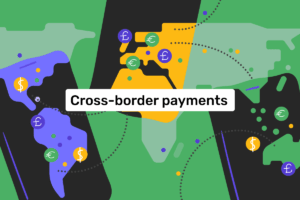ButSpeak.com
News which Matters.

India’s entry into the Nexus initiative promises to transform international payments, linking UPI with ASEAN nations’ systems for faster, more efficient transactions.
India has officially joined the Nexus initiative, a groundbreaking multilateral effort aimed at revolutionizing cross-border retail payments. Led by the Bank for International Settlements (BIS) Innovation Hub, Nexus seeks to integrate the payment systems of ASEAN countries—Malaysia, Philippines, Singapore, Thailand, and now India—promising faster, more efficient, and cost-effective international transactions.
The Reserve Bank of India (RBI) announced its participation following the signing of an agreement in Basel, Switzerland, alongside central banks from the founding member countries—Bank Negara Malaysia, Bank of Thailand, Bangko Sentral ng Pilipinas, and Monetary Authority of Singapore. Indonesia continues its involvement as a special observer, highlighting regional support for enhancing financial connectivity.
Scheduled for launch by 2026, Nexus will leverage each country’s digital payment infrastructure to enable instant cross-border payments. For India, this integration involves linking its widely adopted Unified Payments Interface (UPI), a mobile-based fast payment system, with the corresponding systems in Nexus member countries. This strategic move aims to streamline international transactions, promoting economic cooperation and digital financial inclusion across participating nations.
India’s UPI system has witnessed remarkable growth, handling nearly 80% of digital payments in the country by 2023. Its success has spurred interest from countries such as Sri Lanka, Mauritius, France, UAE, and Singapore, keen on collaborating with India to adopt fintech innovations and enhance global payment solutions.
The Nexus initiative represents a significant step towards expanding India’s international payment capabilities beyond bilateral agreements. By fostering a multilateral approach, Nexus aims to overcome traditional barriers in cross-border payments, enhancing financial interoperability and efficiency among participating economies.
Beyond economic benefits, Nexus holds promise for promoting digital financial inclusion globally. As digital transactions continue to surge worldwide, initiatives like Nexus are poised to democratize access to seamless cross-border payment solutions, benefiting consumers, businesses, and economies alike.
India’s entry into the Nexus initiative underscores its commitment to advancing digital financial infrastructure on a global scale. By integrating UPI with ASEAN nations’ payment systems, India aims to play a pivotal role in shaping the future of cross-border payments, driving economic growth and financial connectivity across borders.